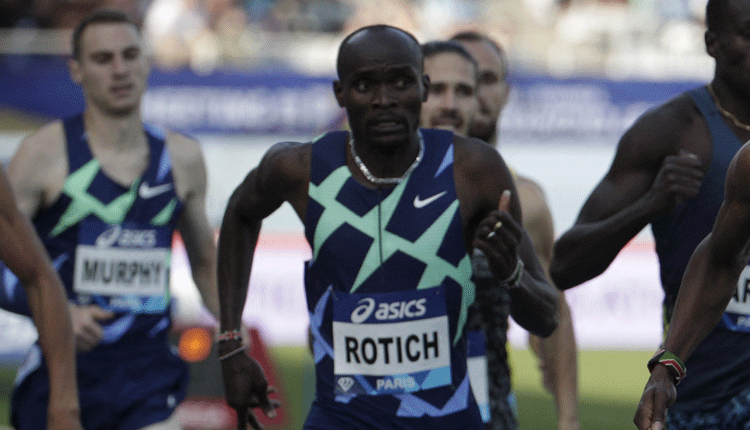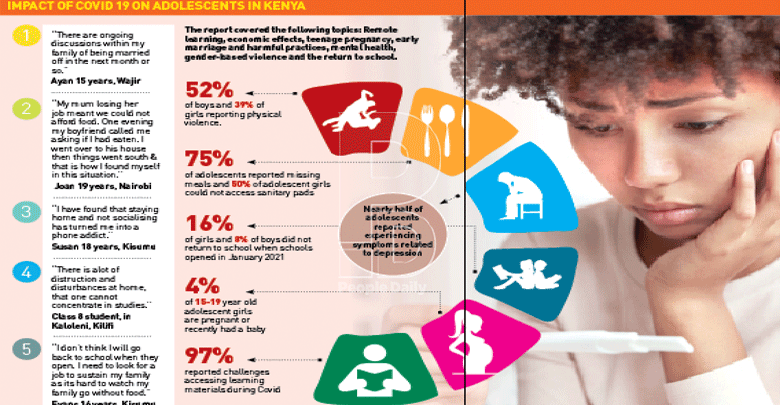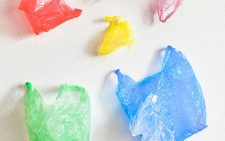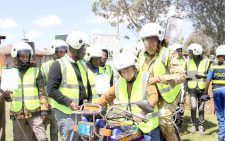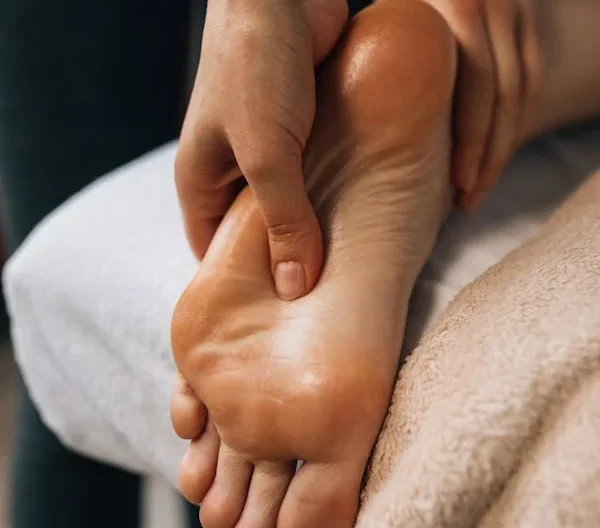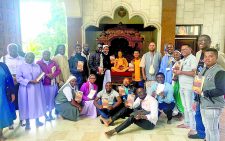Diarrheal diseases, too, suffer blow of invisible coronavirus pandemic
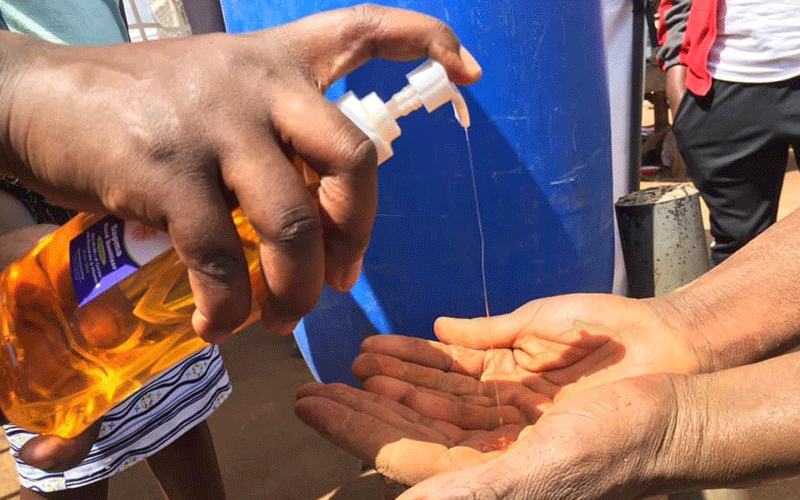
By Clifford Akumu and Bernard Gitau
Even before the coronavirus pandemic, Violet Namkuvu was already struggling to keep her three children away from diarrhea and other communicable diseases.
The 28-year-old housewife from Nairobi’s Soweto slums, frequented hospital with her three-year-old son, who suffered diarrheal-related cases.
“My son used to play with dirty and frothy water in the estate. Because of infections, I used to spend a lot of money in hospital bills,” recalls Namkuvu.
When the first Covid-19 case was recorded in the country, health officials laid down control measures to contain its spread including regular and thorough cleaning of hands with soap and water or alcohol-based hand rub, and social distancing.
Since she improvised a tippy tap hand washing device using a jerrycan and strategically placed it at the door of her tin-shack house together with a bar soap, things have changed.
In communities, especially in informal settlements such as Soweto, handwashing has a new payoff; battling diarrheal diseases.
At first, a hand washing routine was difficult for her children, but they slowly adapted to it. And through community policing initiatives, the area chief has ensured the cleanliness of the residentials is observed.
Her family and neighbourhood’s hygiene too has improved, she explains.
“It is now the other way round. My son makes sure he washes hands immediately he’s coming back to the house. He now forces everybody in the family, even visitors, to wash hands,” she tells People Daily.
As of 2017, diarrhoea remained a leading killer of young children, accounting for approximately eight per cent of all deaths among children under-five worldwide.
This translates to more than 1,300 children dying each day, or about 480,000 children a year, despite the availability of simple effective treatment.
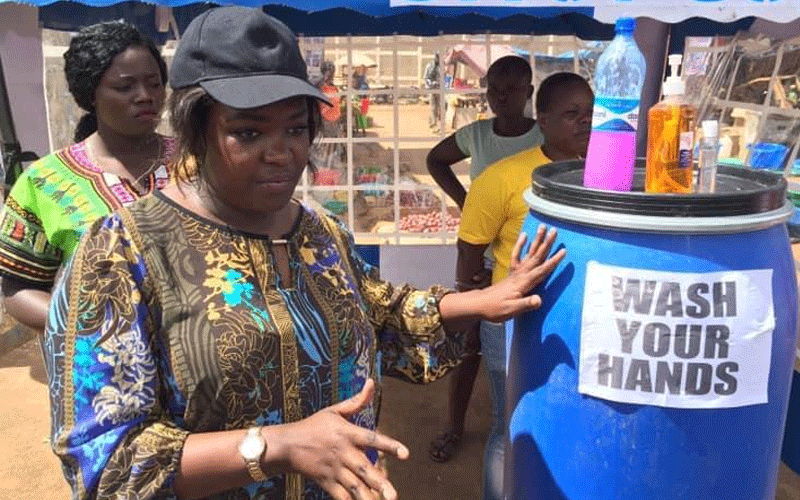
World Health Organisation data published in 2017 indicates diarrhoeal diseases deaths in Kenya reached 33,224 or 11.80 per cent of total deaths. And the age adjusted death rate is 127.36 per 100,000 of population.
Experts pin the turnaround to health interventions in the early 2000s, which were later scaled up to include slight improvements in access to safe water and sanitation.
Disguised benefits
Dr Patrick Oyaro, an epidemiologist, says improved access to water, sanitation, and hygiene during Covid-19 period has greatly impacted on waterborne and diarrhoeal diseases.
Oyaro says preventive and control measures have further eased a niggling worry on amoebiasis also known as amoebic dysentery complications—preventable by high levels of hygiene.
With cases of community transmission of the coronavirus going high, authorities believes preventive measures are key in flattening the curve in the absence of a vaccine or cure. But slowly communities are already reaping the unintended impacts of the virus’ control measures.
“We have to peg our hopes on these preventive measures, until a vaccine is found. What I know is that the benefits of handwashing will be difficult to quantify now because most people are now going to hospital for treatment,” says Oyaro, also a HIV tracker.
Oyaro further notes the only way to ascertain the figure is through surveillance of county health facilities or individual health centres that have recorded a decrease in number of communicable disease cases.
An aggregated data from Homa Bay county reveals that diarrheal disease cases have reduced during this period by around 65 per cent, which Dr Godwin Okomo, the County Director of Health Services, says is “a very commendable improvement”.
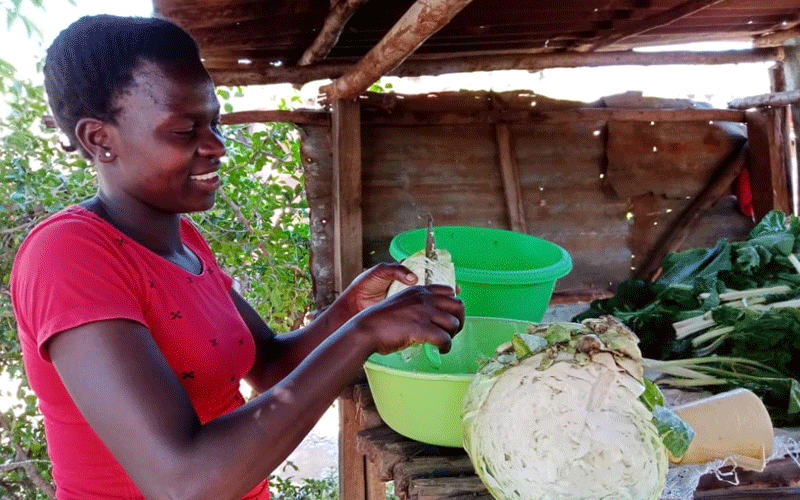
The decrease in cases from the county, adds Okomo, is attributed to the collateral effect of hand washing using soap and water or sanitisers.
“We are working with administrators to make sure every home has simple hand washing place in the compound. Initially, many people in our community only equated washing hands with meal time, but now things have changed,” Okomo told People Daily on phone.
Demand for clean water is on the rise in Kenya, as the World Health Organisation (WHO) and the government urge people to regularly wash their hands to curb the spread of the Covid-19. In Homa Bay and Kisumu counties, the ongoing long rains have been a blessing in disguise, but a challenge on the other hand.
Firstly, notes Dr Okomo, the availability of water has made it possible for every home to have excess supply for hand washing. But on the flipside, the excess water, especially due to floods, is having double impact on the waste disposal, especially on feacal matter.
If not checked, he continues, the waste disposal menace can wipe the gains already being made by regular hand washing. “At the county level, we are encouraging communities to construct lining latrines with trapezoidal blocks in school sanitary facilities and household to manage collapsing.
“And on issues of wash, we have enlisted the efforts of community health care workers and volunteers to sustain behavioural campaigns on preventive measures laid down by the ministry of health,” explains Okomo.
The 2019 Kenya Population and Housing Census shows that there are 12 million households in the country. More than 7.8 million of these have no access to piped water, meaning only 34.2 per cent access piped water, leaving 65.8 per cent spread across the rural and urban areas at the mercy of other water sources.
In Soweto slums, the taps are running dry. Heavy rains swept away the main pipes running through forests in Aberdares Mountain Ranges several weeks ago, and soon after the Nairobi Water and Sewerage Company shut down a treatment plant feeding the city.
Several parts of the city’s posh addresses and slums are struggling with little or no water supply.
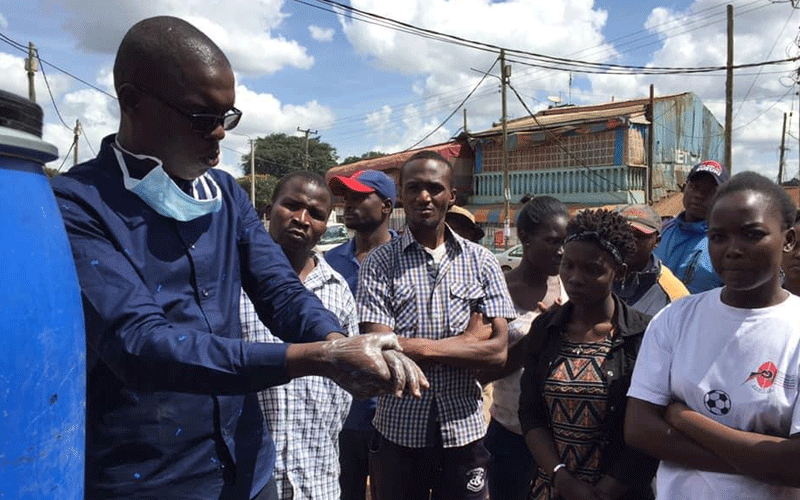
For Namkuvu, who has been struggling to get water for household chores and wash her children’s hand during the coronavirus period, it is a tragedy at a time when the mantra is ‘keep clean’.
Initially, she used to spend Sh5 for a 20-litre jerrycan of water from a mobile water kiosk set up by the county government at the Soweto Social Hall. Now, her water consumption has increased to 10 jerrycans a day. She makes two trips to the water kiosk, extending the cost and time spent on fetching water.
“Will I deal with the virus or water shortage or lack of food? How will I survive without water when the ministry tells us to regularly wash hands?” asks Namkuvu, who says her children now only get two meals a day: strong tea for breakfast and rice or ugali and some cabbage or kale for supper.
Affected populace
According to WHO, since January 2019, 12 of the 47 counties in Kenya reported cholera cases. They include Embu, Garissa, Kajiado, Kisumu, Machakos, Makueni, Mandera, Mombasa, Nairobi, Narok, Turkana and Wajir.
Lydiah Haya, 33, is a mother of two and resident of Nyawita, Kisumu Central in Kisumu county, knows the impact of such outbreaks.
“I used to spend up to Sh500 on medication for my two children due to cholera- related complications,” says Lydia, who runs a grocery kiosk.
Before coronavirus measures, her children, aged three and six, used to sneak into the house without washing hands and pounce on any food they’d find on the table.
None of them remembered to wash their hands, even when they had been told to do so. They would later present with stomach upsets, diarrhoea.
Currently, with the tippy tap at her house’s entrance, hand washing has changed things for the better. At her grocery stall, she has also strategically placed a hand washing spot for the customers.
“With the measures, I have cut my expenditure on my children’s medication by half,” says Haya.
She now feels the burden of expensive water. Her roadside grocery shop now uses more water because of regular hand wash by herself and her clients.
“I have been forced to buy one extra 20-litre jerrycan of water to ensure the few customers I get have water to clean their hands,” she says. She buys a jerrycan of water at Sh20.
She urges the county government to provide traders like her with hand sanitisers. Her worry now is the dusk-to-dawn curfew, which has interfered with business hours hence decreased income.
“And with that drop in income, my concern now is how to get the next meal for my children,” she explains.
In Busia county too, health officials have also recorded low numbers with the diarrheal diseases. However, Dr David Makubi, the medical director says “this could be due to the ongoing curfew directives and patients keeping off hospitals for fear of contacting coronavirus”
“In the last one month, we have seen cases going down. As a county, we are keeping up with the government directives on Covid-19 measures. However, as Kenyan culture, our people still need to be reminded some of these measures,” he adds.
Three months into a nationwide curfew and containment in some counties, many doctors say the pandemic has produced “a silent sub-epidemic” of people who need care at hospitals, but dare not go in.
Both inpatient and outpatient traffic has reduced by more than half in some counties.
In Nakuru, hospitals continue to record extremely low traffic, as patients fear coming into contact with suspected coronavirus cases and healthcare workers in isolation wards.
In some cases, healthcare workers are also shunning facilities, especially those earmarked as quarantine centres in the counties.
But the experts’ main concern is that illness and mortality from unaddressed health problems may rival the carnage produced in regions less affected by the coronavirus.
“We expect we will soon see patients who have dangerously delayed seeking care as ongoing symptoms force them to overcome their fears,” says Dr Oyaro.
The possibility that some of these patients may be suffering and, or, even dying-at home rather than going to a hospital is now more real than ever, adds Oyaro.
“It is very possible their condition might worsen if not addressed. We really need to get data from chiefs on people suffering in the communities and healthcare centres across the country,” he says.
“We want to make sure preventable deaths aren’t happening in our midst,” explains Oyaro.
Concerted efforts
For example, the American College of Cardiology has launched a ‘Cardiosmart’campaign in an attempt to reassure a wary population and encourage those with symptoms to call 911 for urgent care and to continue routine appointments, through telemedicine when practical.
In Homa Bay county, Dr Okomo explains, “We are continuing with other healthcare services as usual and where it is not possible, the county has arrangments.In cases such as HIV drug administration, we have now prolonged the time and are giving patients up to three months of supply.”
Social distancing measures too in public places and transport vehicles has a resultant effect on checking the spread of diseases such as multidrug-resistant TB(MDR-TB)that does not respond to at least isoniazid and rifampicin, the two most powerful anti-TB drugs, caused by person-to-person transmission.
“I used to joke that if you get into a bus from Kisumu to Nairobi and close all the windows and TB patient is seated next to you, you might catch the disease. Some of these infections such as TB might be reduced due to the prevention measures,” the doctor says.
But Oyaro concurs still there is no data yet to corroborate the claims. On matters of wash, community engagement is vital in realising change, especially during such an epidemic.
“We have trained Community Health Volunteers, Ward Representatives and Administrators whom are in touch with the people at the community level to keep social distancing and use face masks when delivering food items or educating the locals on health issues,” adds Okomo.
Namkuvu and Hava represent a number of households that are feeling the impacts of hand washing.
But even as they soldier on, women still struggle to provide water for their families, but the authorities both at the county and national governments seem to offer temporary solutions—leaving women on their own.
“I need water to keep my own and my children’s hand clean. We really need uninterrupted supply during this Covid-19 period,” says Namkuvu.
